Why Does My Dog Always Eat Grass? Top 5 Reasons
It’s a common question of dog owners “why does my dog always eat grass?” Many pet owners are baffled why their dogs tend to have an affinity for grass in the yard. Even my own dog Sherlock did this multiple times. According to the vet, grazing is mostly due to an upset stomach. However, poor diet, boredom, and behavioral problems can also be the reasons.
Below, I discussed the possible explanations of why some dogs gravitate toward the grass. Take note that this may or may not be the case for your pet. When in doubt, nothing beats the opinion of a licensed veterinarian.
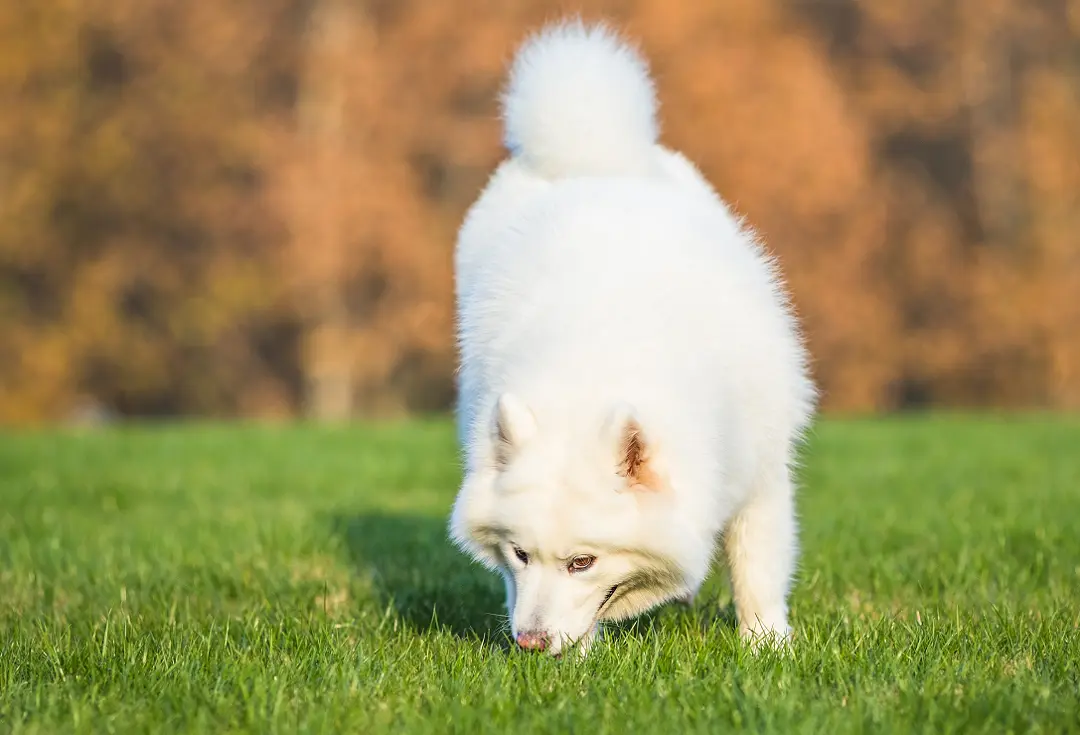
Why does my dog always eat grass? 5 Possible Reasons
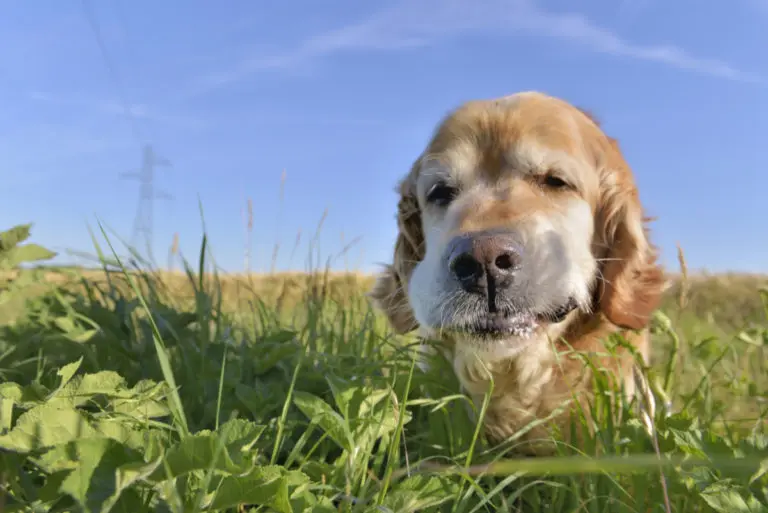
Dogs explore the world through their noses and mouths. But once they ingest non-food items, it can be appalling for pet owners. If your pup is snacking on grass, the following might be the reasons:
1. Your dog has an upset stomach
The most common reason why dogs eat grass is to induce vomiting due to an upset tummy. Dogs that feel a bit sick will chew and eat grass to make their stomach feel better.
Evidence suggests that 10% of dogs that ate grass were unwell even before they consumed it. This can be due to intestinal worms, indigestion, gastric reflux, and inflammatory bowel disease.
You should take your dog to the vet’s clinic immediately. Take note that health conditions that cause lingering digestive problems require immediate treatment.
2. Your dog just enjoys it
On a less serious note, your dog probably just enjoys chewing grass. This is most common among puppies that are still teething. Chewing on thick, sturdy grass soothes the discomfort puppies feel like their teeth sprout.
Also, your dog might be enjoying the taste of grass. Unlike cats that are true carnivores, dogs are actually omnivores. This means that they eat a mix of both plant and animal ingredients.
While most lawn grass is harmless, you shouldn’t tolerate this habit of your dog. The grass might be treated with pesticides or fertilizers that could lead to poisoning if ingested by your dog.
3. Your dog has nutritional deficiencies
Nutritional deficiencies are another reason veterinarians consider when dogs keep on eating grass. It’s possible that your dog’s diet doesn’t have enough fiber for proper digestion. To compensate, your doggo will go outdoors and chomp on some fresh grass.
While eating grass, you dog may eat dirt which can be a serious problem. Soil has many bacteria, virus and parasite eggs that can be very dangerous for your dog’s health.
Moreover, grass-eating might be your dog’s way of indicating hunger. Feeding the pup and switching to a healthier dog food product might help correct the behavior.
4. Your dog is bored
Boredom can push dogs to do things not generally observed in them. This includes eating grass despite having a complete and balanced diet. Your dog probably needs more physical and mental stimulation.
Daily walks and playtime should help in this case. If you’re leaving your dog alone at home, make sure that it has toys to occupy its time. Remember that extreme boredom can soon develop into separation anxiety.
5. Your dog has Pica
Lastly, you should consider the possibility that your dog has a condition called Pica. Dogs with this condition will consume inedible things like hair, plastic, fabric, and fresh plants. The canine will eat just about anything it will get its paws and mouth on.
The cause of Pica is quite difficult to assess, but a poor diet is one of the leading reasons. However, underlying health problems and even psychological disorders may lead to Pica.
Take note that Pica can occur to all dogs, regardless of breed and age. Also, dogs with Pica won’t just eat grass in your yard. They will also swallow pebbles, soil, trash, and all. This increases the dog’s risk of getting poisoned or having an intestinal blockage.
How to stop your dog from eating grass?
If your dog’s grazing is becoming obsessive and worrisome, you can do the following steps:
Keep your dog well-nourished!
The first thing you should do is assess your dog’s diet. You can consult with a veterinarian if your dog needs more fiber or a change in food.
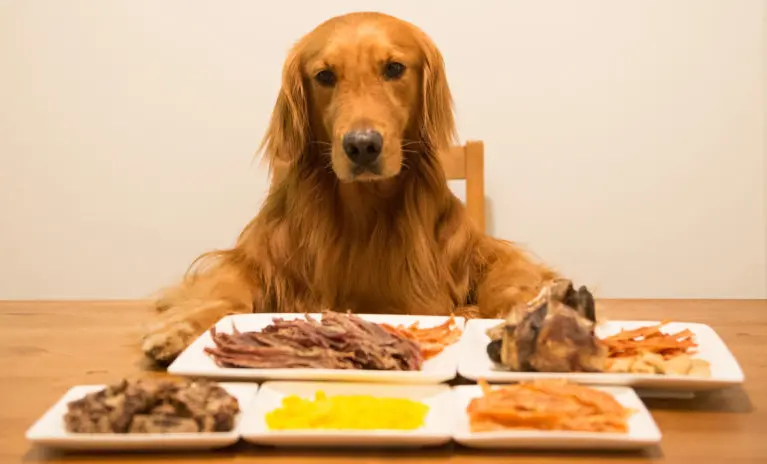
If you are to switch your pet to a new food product, you should do so gradually. Add the new food into the dog’s old diet in small portions until you’ve changed it entirely. You should also watch out for any irritations that may occur.
If your dog still eats grass despite eating a better diet, the next tips will help.
Off the grass, please!
Your dog can’t eat grass if he can’t get into it. While you’re working on a solution with your pet’s vet, it’s best to keep the doggo indoors. During the potty time, keep a close eye on your dog so you can interrupt its grass-eating habit.
Keeping your dog away from the grass is a must if you’ve treated your yard with chemicals. You may need to monitor your dog all the time, but this will keep him safe from poisoning.
Add more exercise
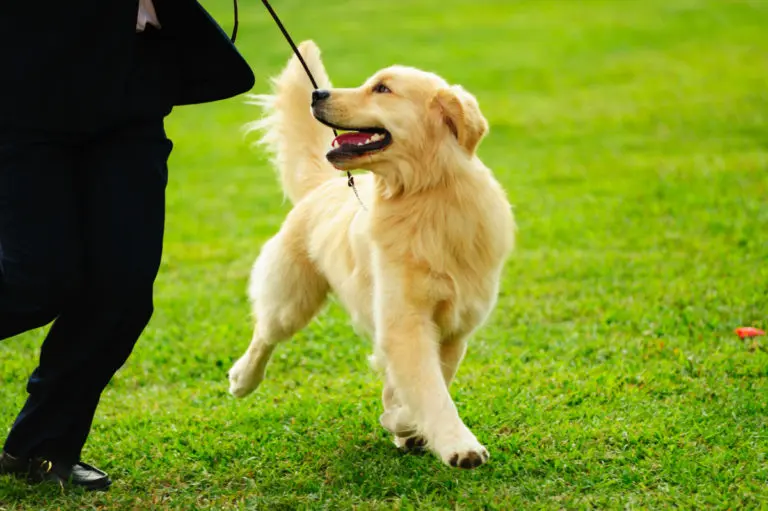
A tired dog will not have the excess energy to go out and eat grass. More exercise and playtime will take your dog’s mind away from eating grass. It’s also a great way to beat boredom.
Make sure that your dog’s activities are mentally engaging. Aside from walking, you should also teach your dog to fetch. You can even set up a makeshift obstacle course indoors to exercise your dog’s mind.
Soundness of mental health is as important as physical health. You can use toys and puzzle games to keep your dog mentally active. These provide mental stimulation and your dog won’t think of engaging into destructive, harmful activities.
Provide an alternative
If your dog isn’t leaving the grass alone, you can give a safer and healthier alternative. Grow a patch of wheatgrass indoors and let your dog munch on it. Wheatgrass also beats bad breath while giving your doggo a source of chlorophyll.
If your dog isn’t attracted to wheatgrass, you can grow herbs safe for canines. Parsley, basil, and rosemary are just some of the best choices for your dog.
Why is my dog eating plants all of a sudden?
Aside from grass, dogs can also target other foliage, including indoor plants. This could be due to the same reasons as to why the pup consumes grass.
Boredom, upset tummy, hunger, and deficiencies can be the reasons why dogs eat plants. However, you should be careful as many garden and indoor plants are toxic to canines.
For example, your beloved lily, ivy, and Aloe vera are poisonous to canines. It’s best to keep indoor plants away from dogs to be sure.
What grass is bad for dogs?
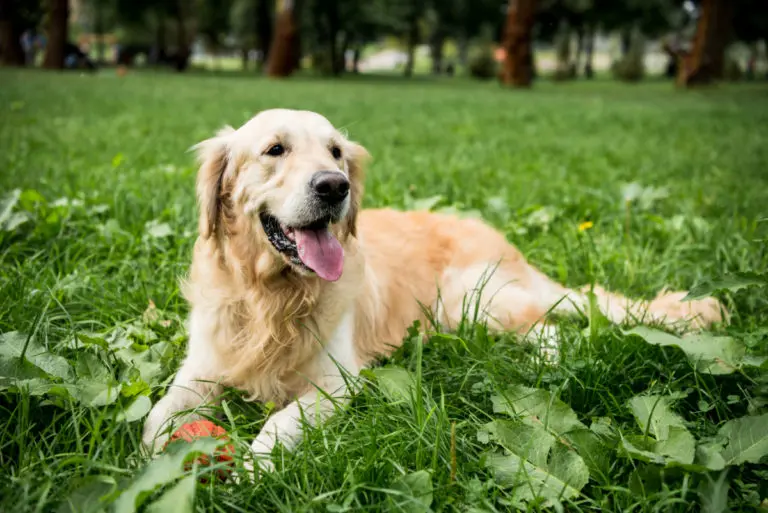
Untreated lawn grass is usually harmless for dogs. However, you should never let your pet eat the clippings. A fungus called Aspergillus thrives in grass clippings, hay, and dust. This causes Aspergillosis, which will trigger mild to severe lung infections in dogs.
Most dogs that inhale the Aspergillus fungus will suffer from localized nasal infections. However, canines that have been exposed to large amounts and have lingering respiratory problems might develop more severe symptoms.
Also, you have to be careful with grass awns. These are grasses with stiff bristles, similar to that of barley or rye flowers. Some gardeners call this foxtails or cheatgrass.
Take note that grass awns can cause a lot of trouble in dogs. The bristle-like parts of the awns adhere to surfaces. This means it can stick to your dog’s ears, nose, and skin. If your dog suffers from respiratory distress or incessant sneezing after being in contact with grass awns, some of it might be stuck on his nasal passage.
Respiratory problems require urgent attention. Negligence can result in loss of your pet’s life. It is therefore important to know what are the signs of respiratory distress in a dog, so you can act timely and save your dog.
Also, grass awns might irritate your dog’s throat if it swallowed some. This might be difficult to remove, especially if your dog consumed a large amount.
In general, any grass or weed with structures that resemble bristles, hair, and thin spikes are potentially dangerous for dogs.
Conclusion
Why does my dog always eat grass? Grazing is widely observed in dogs and is mainly due to an upset stomach.
If the behavior is becoming intense, it’s best to bring the dog to the vet. A health problem might be causing your dog’s obsession with grass. It is necessary to remove the root cause of problem for resolving it properly.
Thank you for reading and take good care of your dog!
